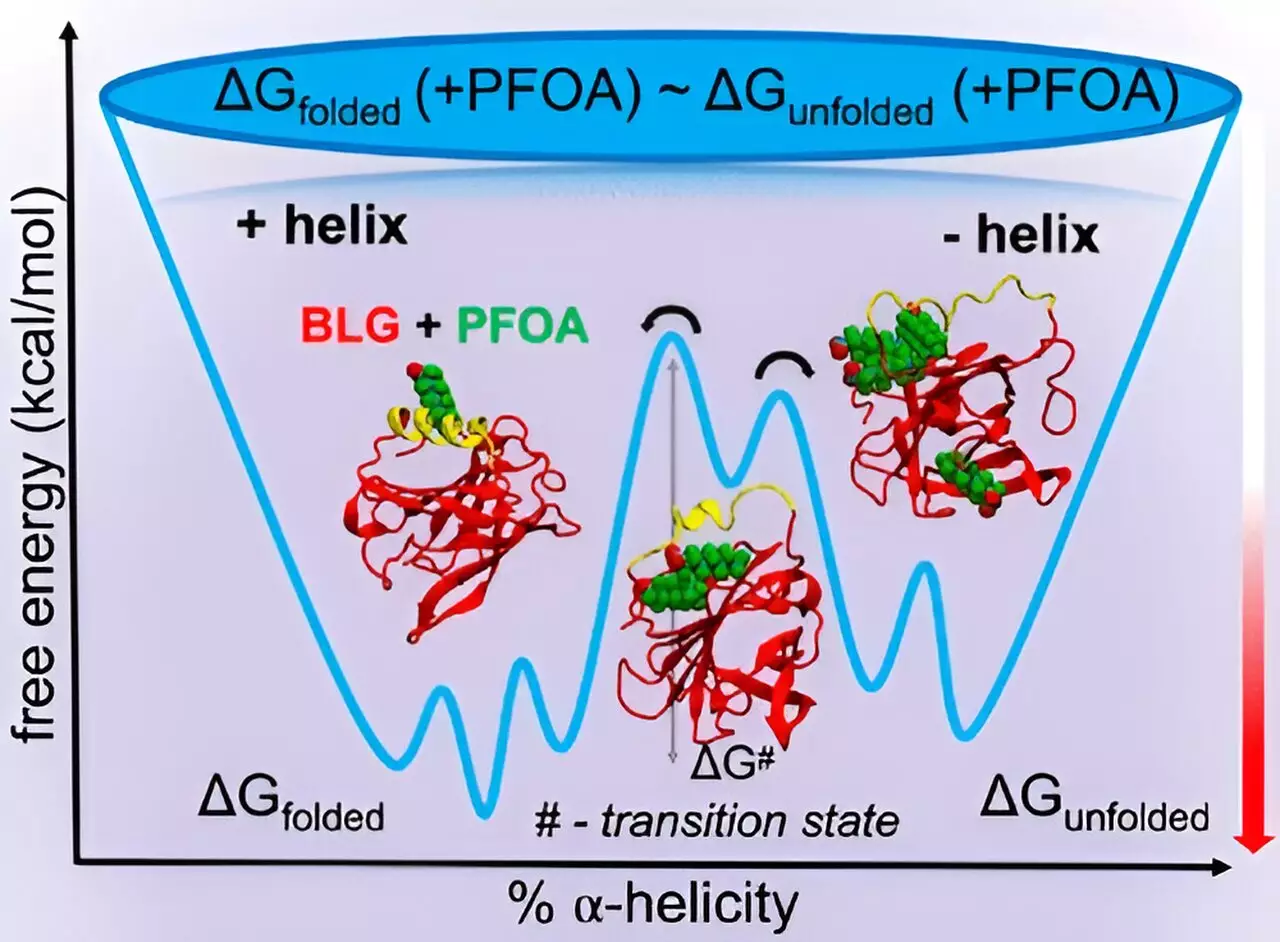The University of Texas at El Paso has conducted groundbreaking research on the effects of nanoplastics and per- and polyfluoroalkyl substances (PFAS) on human health. These manmade compounds, often referred to as forever chemicals, have been linked to disrupting biomolecular structure and function, potentially causing developmental issues downstream. This research sheds light on the detrimental effects of these compounds on proteins critical to human development.
The research conducted by the UTEP team focused on three key proteins: beta-lactoglobulin, alpha-lactalbumin, and myoglobin. These proteins play crucial roles in human health and development. The findings of the study revealed that nanoplastics and PFAS have the ability to alter the structure of these proteins, leading to potential health complications.
Results of the Studies
The study showed that nanoplastics and PFAS completely dissolve a region of proteins known as the alpha helix, converting them into beta sheets. This unexpected impact on the alpha helix could have significant implications for human health, especially if the synthetic chemicals reach the brain. Additionally, the research team found that exposure to these compounds can lead to decreased binding efficiency of beta-lactoglobulin to retinol and fatty acids, potentially resulting in developmental issues in neonatal infants.
Disruption of Protein Structure
Alpha-lactalbumin, a protein found in human breast milk, plays a crucial role in lactose synthesis and meeting the nutritional needs of infants. The study revealed that exposure to nanoplastics and PFAS corrupts the structure of alpha-lactalbumin, which could compromise lactose formation and lead to developmental defects in infants. Similarly, myoglobin, responsible for storing oxygen, was found to be compromised by nanoplastics and PFAS, potentially leading to health issues such as breathlessness and anemia.
The research conducted by the UTEP team has significant implications for public health and environmental policies. The findings highlight the importance of scientific research in addressing global challenges posed by manmade materials like nanoplastics and PFAS. The innovative approach taken by the research team showcases the transformative work being done at UTEP on a regular basis.
Future Research
Moving forward, Dr. Mahesh Narayan and his research team plan to continue their studies and investigate the effects of other plastics and PFAS compounds on human health. By understanding the molecular mechanisms through which these compounds disrupt cellular functions, scientists can work towards developing safer alternatives to these materials. The insights gained from this research have the potential to drive advancements in public health and environmental protection.


Leave a Reply